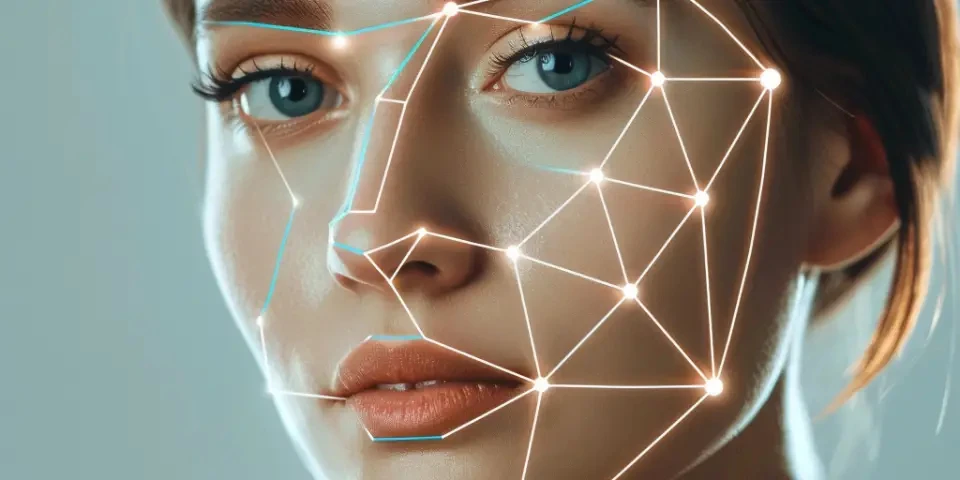AI-Driven Solutions for a Cozy and Stress-Free Home Environment
Introduction
In today's fast-paced world, creating a cozy and stress-free home environment can seem like a daunting task. However, with the advent of Artificial Intelligence (AI) technology, achieving this goal has become more attainable. AI-driven solutions offer innovative ways to automate and enhance various aspects of our homes, providing convenience and comfort for a more relaxing and enjoyable living experience.
1. Smart Lighting
AI-powered lighting systems enable homeowners to effortlessly control the ambiance of their living spaces. With voice commands or mobile apps, individuals can fine-tune the brightness, color, and scheduling of their lights. Moreover, these systems can learn and adapt to the user's preferences, creating an optimal lighting environment based on the time of day or activity.

Example: Philips Hue smart lighting system provides a wide range of customizable lighting options, including gentle wakeup routines and remote control through voice assistants like Amazon Alexa or Google Assistant.
2. Temperature Control
AI-equipped thermostats can intelligently regulate the temperature in a home, ensuring comfort while optimizing energy efficiency. These devices monitor patterns, preferences, and external factors to automatically adjust heating and cooling, reducing energy consumption and costs.
Example: Nest Learning Thermostat utilizes AI algorithms to learn the household's schedule and preferences, automatically adjusting temperature settings to provide optimal comfort while conserving energy.
3. Automated Home Security
AI-driven home security systems offer advanced monitoring and protection, enhancing safety and peace of mind. With features like facial recognition, motion detection, and remote access, homeowners can keep a close eye on their property, receive real-time alerts, and even allow access to trusted individuals when away.
Example: Ring Alarm combines a range of AI-powered security devices, including video doorbells, motion sensors, and a central hub, providing comprehensive protection and convenient control through a mobile app.
4. Intelligent Appliances
AI integration in appliances such as refrigerators, washing machines, and ovens enhances functionality and convenience. These devices can learn usage patterns, suggest optimized settings, and even automate mundane tasks, simplifying daily routines and reducing manual effort.
Example: LG ThinQ appliances utilize AI to learn usage habits and offer personalized recommendations, such as adjusting refrigerator temperatures based on stored items or sending alerts for maintenance needs.
5. Voice Assistance
Voice-activated AI assistants have become increasingly popular in homes. These smart speakers, integrated with virtual assistants like Amazon Alexa or Google Assistant, offer a seamless way to control various devices, play music, answer questions, and provide helpful information, all through natural language commands.
Example: Amazon Echo, equipped with Alexa, is a voice-controlled speaker that allows users to control smart home devices, set timers, play music, and access a vast range of information with simple voice prompts.
6. Personalized Entertainment
AI algorithms analyze personal preferences and behavior to curate personalized content recommendations for music, movies, and television shows. Streaming platforms, such as Netflix and Spotify, utilize AI to suggest relevant content based on the user's past choices, resulting in a more enjoyable and tailored entertainment experience.
7. Smart Home Integration
AI-driven solutions can connect multiple devices and systems within a home, allowing seamless communication and control. Integrating lighting, security, temperature, and entertainment systems under a unified interface enhances convenience and simplifies daily operations.
8. Sleep Optimization
AI-powered sleep-enhancing devices can monitor sleep patterns, provide detailed sleep analysis, and offer personalized recommendations for improving sleep quality. Some devices, like smart mattresses or pillows, can adjust firmness or gently wake users during the lightest sleep phase for a more refreshing morning.
Example: Eight Sleep's AI-driven Smart Bed uses temperature control, biometric tracking, and partner-friendly features to optimize sleep quality, helping individuals wake up more energized.
9. Energy Management
AI-based energy management systems can track and analyze energy consumption patterns, identify potential wastage, and suggest energy-saving measures. These solutions help homeowners make informed decisions about energy usage, contributing to a greener and more cost-effective household.
10. Virtual Home Assistants
Virtual home assistants powered by AI technology can provide real-time information on weather, traffic, news, and a wide range of other topics. These assistants can also schedule appointments, set reminders, and act as personal organizers, enhancing productivity and reducing stress.
Example: Google Assistant offers intelligent virtual assistance, providing information, scheduling, and control over various devices through voice commands or written requests on smartphones and smart displays.
11. Smart Pet Care
AI-driven solutions cater to pet owners by automatically feeding, monitoring, and providing interactive playtime for pets in the absence of their owners. These devices ensure pets' well-being and alleviate stress by providing convenient care options even when the homeowner is away.
Example: Petcube Bites 2 is an AI-powered pet camera that not only allows remote monitoring but also dispenses treats and provides interactive laser games to keep pets engaged.
12. Health and Well-being
AI-powered devices can integrate health monitoring features into the home environment, allowing individuals to track vital signs, receive personalized health recommendations, and even connect with healthcare professionals when needed. These solutions promote well-being and early detection of potential health issues.
Frequently Asked Questions:
Q1: Are AI-driven solutions expensive to implement?
A1: AI-driven solutions vary in price, depending on the complexity and functionality required. While some devices and systems can be more costly, there are affordable options available in the market that cater to different budget ranges.
Q2: Can AI-powered devices be easily integrated into existing homes?
A2: Yes, many AI-powered devices are designed to be easily compatible with existing home infrastructure. Most devices connect via Wi-Fi, allowing straightforward integration into a home's network.
Q3: Are AI-driven solutions secure?
A3: AI-driven solutions prioritize security and privacy. It is crucial to choose well-established brands that offer robust security features and regular software updates to protect against potential vulnerabilities.
References:
[1] "Philips Hue Smart Lighting." Retrieved from https://www.philips-hue.com/
[2] "Nest Learning Thermostat." Retrieved from https://store.google.com/us/product/nest_learning_thermostat
[3] "Ring Alarm." Retrieved from https://ring.com/alarm-security-system
[4] "LG ThinQ Appliances." Retrieved from https://www.lg.com/global/lgn/thinq/overview
[5] "Amazon Echo." Retrieved from https://www.amazon.com/Amazon-Echo-And-Alexa-Devices/b?ie=UTF8&node=9818047011
[6] "Eight Sleep Smart Bed." Retrieved from https://www.eightsleep.com/
[7] "Google Assistant." Retrieved from https://assistant.google.com/
Explore your companion in WeMate